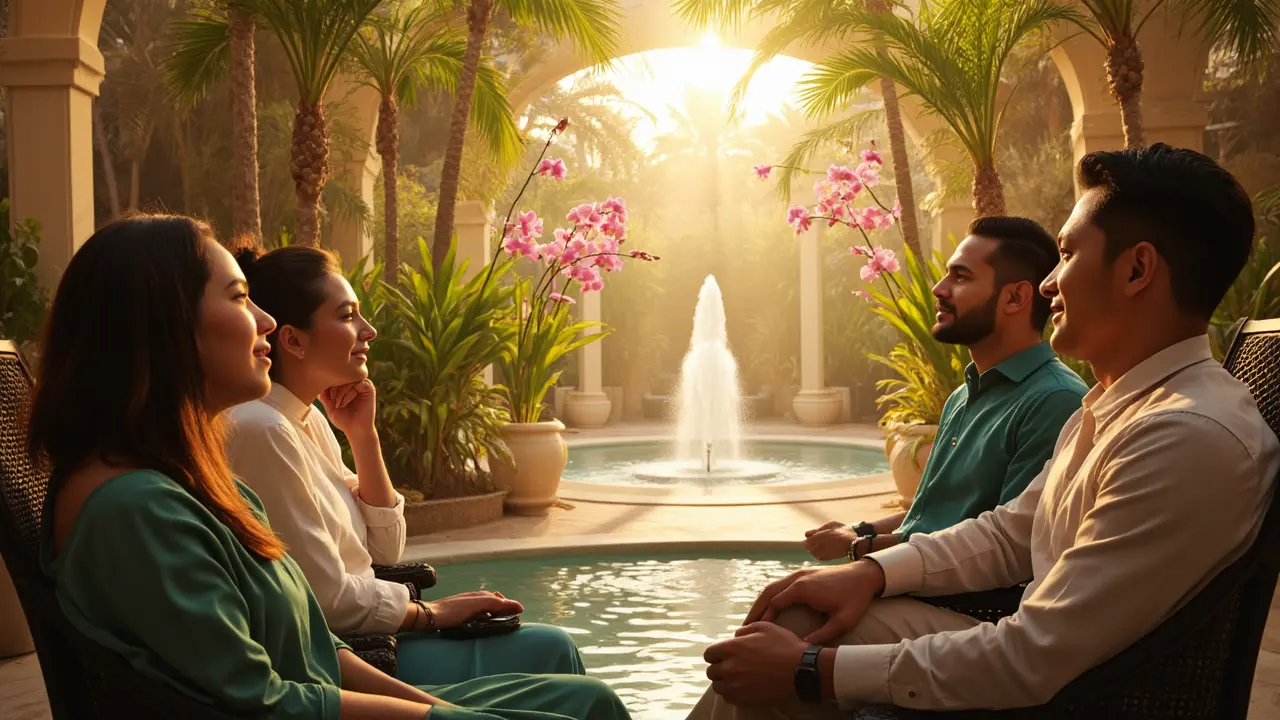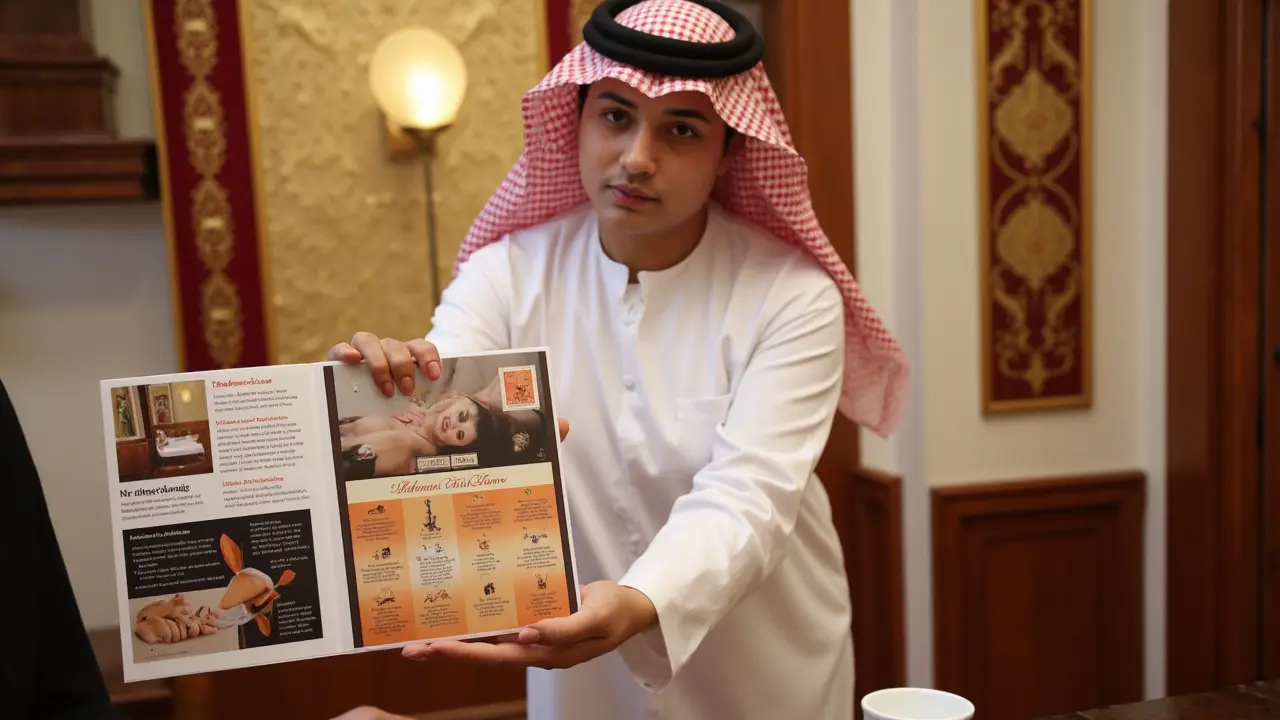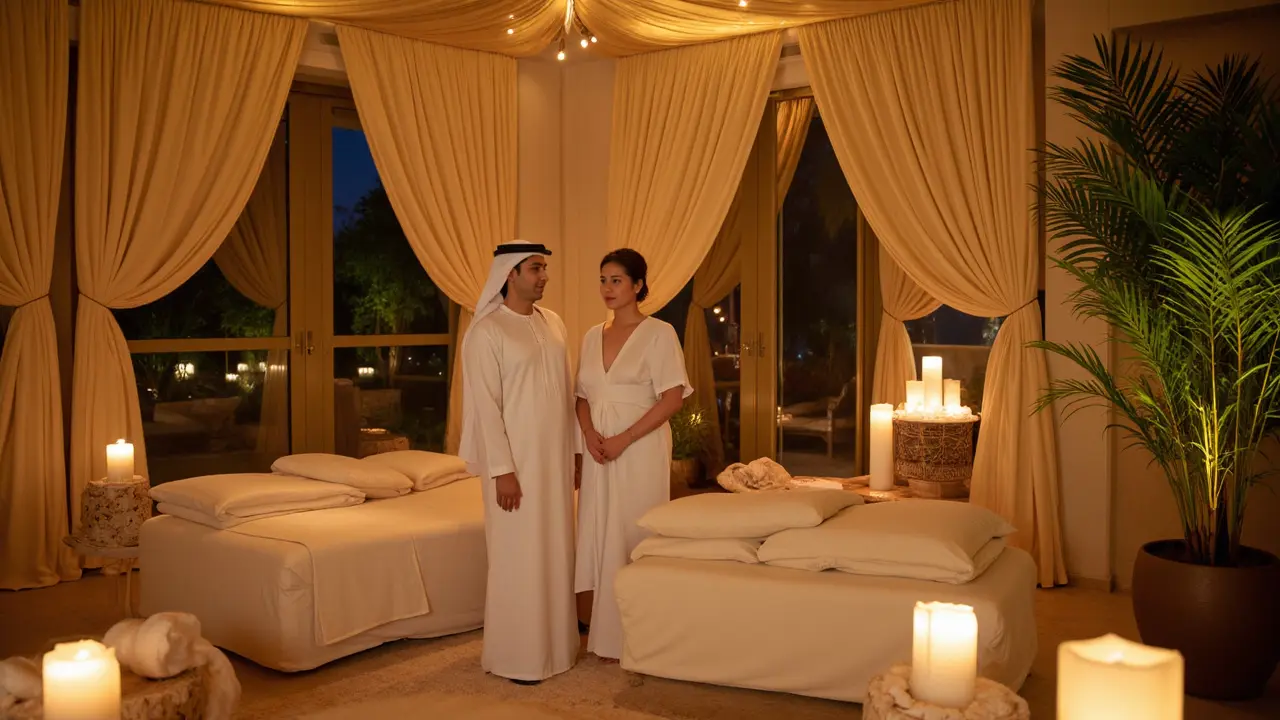Stressed out, worn down, or just craving some good old-fashioned peace of mind? You’re not alone—Dubai moves fast, and honestly, it wears on anyone. Thai massage isn’t just a luxury treat here; for a lot of people, it’s their secret weapon against burnout.
So, what’s the real deal with Thai massage in Dubai? Not all massages are equal, and Thai massage stands out for a reason—it’s been called “lazy yoga,” but it’s way more than stretching. You get clothed, you’re moved and twisted (don’t worry, it’s not painful), and afterward, your body feels like it hit the reset button.
Thinking about booking your first Thai massage? There are tons of options in Dubai, which is great but also a little overwhelming. From fancy spas in Downtown to hidden gems in Jumeirah, you’ve got choices—and picking the right place isn’t just about price. Quality, hygiene, and therapist skill make all the difference. Before you jump into a session, it helps to know what you’re walking into, what you’ll pay, and how to stay safe and comfortable throughout. Let’s clear it up so you can book like a pro and walk away feeling lighter than ever.
- Key Facts & Quick Answers
- How Thai Massage Works in Dubai
- Popular Thai Massage Types & Where to Find Them
- What a Session Feels Like
- Booking, Pricing & Safety Tips
Key Facts & Quick Answers
Got questions about Thai massage in Dubai? Here’s what you really need to know—fast, clear, and straight to the point.
- Thai massage focuses on stretching, pressure points, and movement. You keep your clothes on—no need for slippery oils everywhere.
- It’s nothing new. This style of massage has roots going back 2,500 years, blending traditional Thai practices with influences from India and China.
- thai massage Dubai clinics and spas are licensed and follow UAE health and safety standards. Fancy hotels and small wellness centers both offer trusted sessions—but always check for proper licensing.
- Most Thai massages in Dubai last 60–90 minutes and focus on the whole body—from head to toe.
- You’ll see both male and female therapists. Most places let you pick if you prefer a specific gender.
- Feeling sore after your first session is normal, especially if you’re not used to stretching. But people often report better sleep and less stiffness afterward.
- Prices can vary a lot, but you’ll usually pay AED 180–350 for a 60-minute session in a clean, reputable spa.
| Fact | Quick Insight |
|---|---|
| Session Duration | 60-90 minutes (most common) |
| Average Price | AED 180 – AED 350 (per hour) |
| Dress Code | Keep comfy clothes on (no oils needed) |
| Best Areas in Dubai | Jumeirah, Downtown, Marina, Deira, and Al Barsha |
| Booking | Online, by phone, or walk-in (recommended: book in advance) |
Quick tip: always confirm if your therapist is certified in Thai massage. It makes a massive difference on the table—and in how you feel afterward.
How Thai Massage Works in Dubai
Curious about how a thai massage Dubai experience actually goes down? It’s not like your usual oil massages. Classic Thai massage is mostly done fully clothed on a mat, not a massage bed, so don’t worry about getting undressed or sticky oil stains on your clothes.
Therapists use their hands, elbows, knees, and even their feet to apply pressure and stretch your body. This style comes from centuries-old techniques and blends yoga-like stretches and acupressure. Expect your arms pulled, back gently twisted, and legs moved in ways you haven’t tried since gym class. It might look intense, but a trained therapist always checks in and works with your comfort level.
In Dubai, Thai massage studios pay close attention to privacy and cleanliness, especially because the city’s health rules are pretty strict. Many spas are run by certified Thai therapists, so you get the real deal, not a watered-down version. The atmosphere is usually calm, quiet, and set up for genuine relaxation. No noisy hair dryers or gym soundtracks—just low lighting, soothing Thai music, and clean towels (always ask if you’re not sure!).
Sessions usually last 60 to 120 minutes. The therapist focuses on loosening up tension points, increasing flexibility, and boosting your circulation. Some places offer extras like herbal compresses or hot stones, but the base experience is all about those signature Thai stretches and pressure moves.
If it’s your first time, don’t stress—just tell your therapist if you’re feeling any pain or discomfort. They’ll happily adjust and want you to leave feeling lighter, not sore. That’s how Thai massage in Dubai goes—it’s all about treating you to a genuine, safe, and super effective body reset, right in the heart of this busy city.

Popular Thai Massage Types & Where to Find Them
Not all Thai massages in Dubai are the same. You’ll spot different styles and combos, and each one offers something unique. Here are the main types you’ll see on menus across the city:
- Traditional Thai Massage: This classic involves lots of stretching, pressure points, and rhythmic compressions. You keep your clothes on, and there’s no oil—it’s all about movement and deep muscle work.
- Thai Aroma Oil Massage: If you want that chill, spa vibe along with the stretching, this is for you. Therapists use essential oils, so you get relaxation with a side of aromatherapy. Great if you love a gentle touch.
- Thai Herbal Compress: Warm herbal pouches are pressed onto your skin. The heat and herbs loosen tight spots, so this one’s perfect if your muscles feel stubborn after workouts or long workdays.
- Foot & Head Thai Massage: These focus on specific areas and are perfect if you’re short on time or just want stress relief without a full-body session.
- Thai Hot Stone Massage: Stones heated to the perfect temp are used to melt tension. It’s the oil massage’s more intense cousin—great if you need deep calm fast.
So, where do you find these in Dubai? Here’s the thing: Downtown Dubai, Business Bay, and Jumeirah Beach Road are loaded with reputable options. Some of the top-rated places locals actually return to include:
- Let’s Relax Spa (Jumeirah Beach Road)
- Soul Senses Spa & Wellness (multiple locations, including The Walk, JBR)
- Thai Privilege Spa (Downtown Dubai)
- Talise Spa at Madinat Jumeirah for more of a luxury touch
Don’t sleep on the newer massage studios popping up in Arabian Ranches and Dubai Marina—they tend to keep their prices more reasonable while still offering well-trained Thai therapists. Always check if the place is licensed; in Dubai, spas must be approved by the Dubai Health Authority, and you can actually check this on the spa’s website or ask at the desk.
Here’s a quick-look table to help you figure out what style fits you best:
| Massage Type | Good For | Session Length |
|---|---|---|
| Traditional Thai Massage | Deep muscle relief, flexibility | 60-90 min |
| Thai Aroma Oil | Relaxation, skin hydration | 60-90 min |
| Herbal Compress | Muscle pain, detox | 90 min |
| Foot/Head Thai Massage | Quick stress relief | 30-45 min |
| Thai Hot Stone | Deep tension, fast relaxation | 90 min |
Quick tip: Always tell your therapist about any medical conditions or aches in advance so they can adjust the routine. Most good spas in Dubai will listen and tweak the pressure or focus areas for you.
What a Session Feels Like
Ever walked into a Thai massage session and wondered if it’s going to be relaxing or a bit of a workout? Honestly—it’s both, but in the best way possible. Here’s a realistic play-by-play of a typical session in Dubai.
You usually stay fully clothed (yes, keep on those comfy yoga pants), and it usually starts on a padded mat instead of a massage table. Your therapist will ask about any sore spots or old injuries. Don’t skip this—your comfort depends on it.
- Best spa Dubai spots often kick things off with a quick foot wash, which is a nice touch after navigating city dust.
- During the session, your therapist uses hands, elbows, knees, or even feet to press and stretch your muscles. This isn’t just rubbing—it’s about releasing tension and boosting blood flow.
- Expect slow, steady movements. Sometimes you’ll be pulled into stretches that feel a bit like assisted yoga. There’s a reason people call this “lazy yoga”—you do nothing; the therapist does the work.
- If anything hurts or feels off, speak up. Communication matters if you want the best results.
Here’s a quick breakdown of how the session is paced:
| Session Length | Main Activities | How You Might Feel |
|---|---|---|
| 30 minutes | Focus on upper body, quick neck/back relief | Refreshed, good for a lunch break |
| 60 minutes | Full body treatment, stretches + compression | Looser, less stress, possibly a bit sleepy |
| 90-120 minutes | Full body + extra focus on tight spots | Deep relaxation, almost floaty after |
No oils are used in traditional Thai massage (unless you request an oil-based variation). Don’t expect music and candles at every place—some stick to tradition, others add a fancy spa vibe. It really depends where you book.
If you’re worried about soreness after, you might feel a little tender in tight areas, but most people say they sleep better and move easier right away. Many locals recommend drinking water before and after your session—it can help with all the stretching and keep you from getting dehydrated.

Booking, Pricing & Safety Tips
Let’s cut through the confusion—booking a thai massage Dubai session should be dead simple, but getting the best experience takes a little know-how. Most top-rated spas in Dubai offer online booking. This lets you scroll available therapists, see actual time slots, and avoid back-and-forth messages. You’ll usually get a confirmation by WhatsApp or email, which is way more reassuring than hoping your phone booking went through.
What about prices? For a real Thai massage, standard rates in Dubai as of mid-2025 are:
- 30-minute session: AED 110 to 180
- 60-minute session: AED 180 to 350
- 90-minute session: AED 260 to 450
Upscale spas at hotels (think Atlantis or Burj Al Arab) usually charge at the high end, sometimes even above AED 600 for 90 minutes, while authentic Thai-run shops in places like Al Barsha or Karama stick to the regular range. Sometimes you’ll find weekday discounts or packages that include foot scrubs or other perks, so it’s worth checking the website or calling ahead.
When booking, look for these green flags:
- Licensed, trained therapists (many spas proudly mention this on their websites)
- Clear hygiene protocols (especially post-pandemic)
- Transparent pricing—no hidden extras when you pay
If you feel awkward about the process, that’s normal. You can ask for a female or male therapist; just make your preferences clear upfront. If something doesn’t feel right, walk away—there are enough reputable places in Dubai that you don’t need to settle.
On safety, always check that the spa is licensed by Dubai Health Authority (DHA). Don’t skip this, especially if you’re heading to independent places. Genuine reviews on Google Maps or Instagram are gold. A regular, Dubai-based client, Sara Al-Qassimi, sums it up perfectly:
“The main thing is choosing a spa that’s licensed and upfront about their staff qualifications. That’s made all the difference for me—never had a bad experience since.”
Lastly, stick to basic safety—let the therapist know about allergies, injuries, or pregnancy in advance. If you’re not comfy during the session, say something. Good therapists are used to feedback and want you to have a positive experience.
